Probably about a month ago now as I was leaving a local restaurant I saw a sign advertising “Plantation Day.” It didn’t fully soak in until I was on the way home. After looking around on the Internet, I couldn’t find the flyer anywhere, so I emailed the Lake Jackson Historical Association. They sent me a copy of the flyer. Apparently, this celebration has occurred for at least several years.
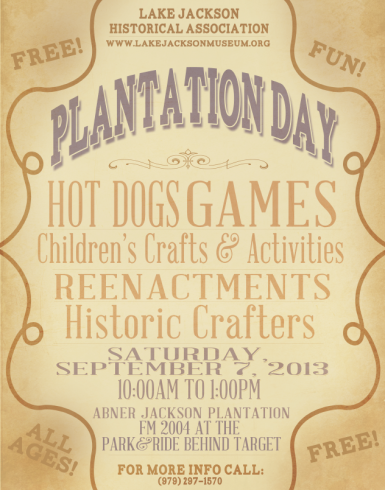
The very name concerned me, but the flyer horrified me.
This morning I went “undercover” to see what Plantation Day was really about.
It wasn’t at all what I expected. In ways it was worse. First, I’m going to give a rough narrative overview. After that, I will provide some analysis and historical data. This posting is purposely less in-depth than what I usually aim for because my analysis of Plantation Day, along with other local plantation sites and museums, will be part of a conference paper in several months.
When I first entered the Abner Jackson Plantation there were two signs.
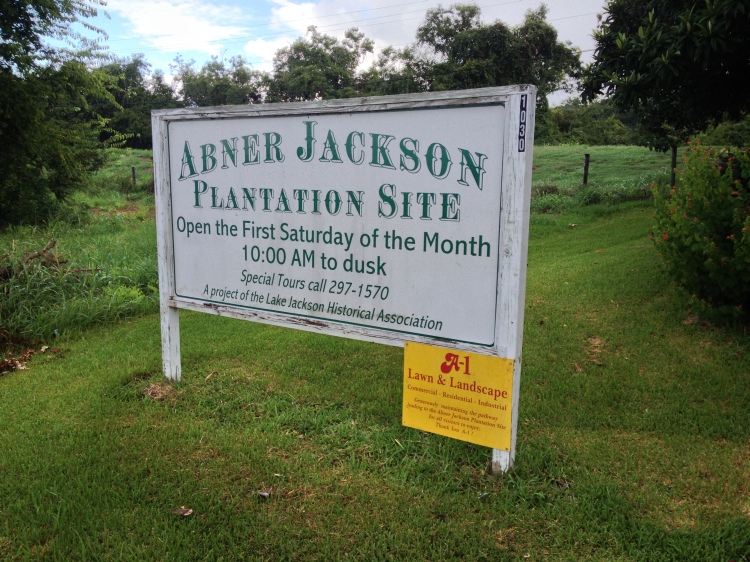
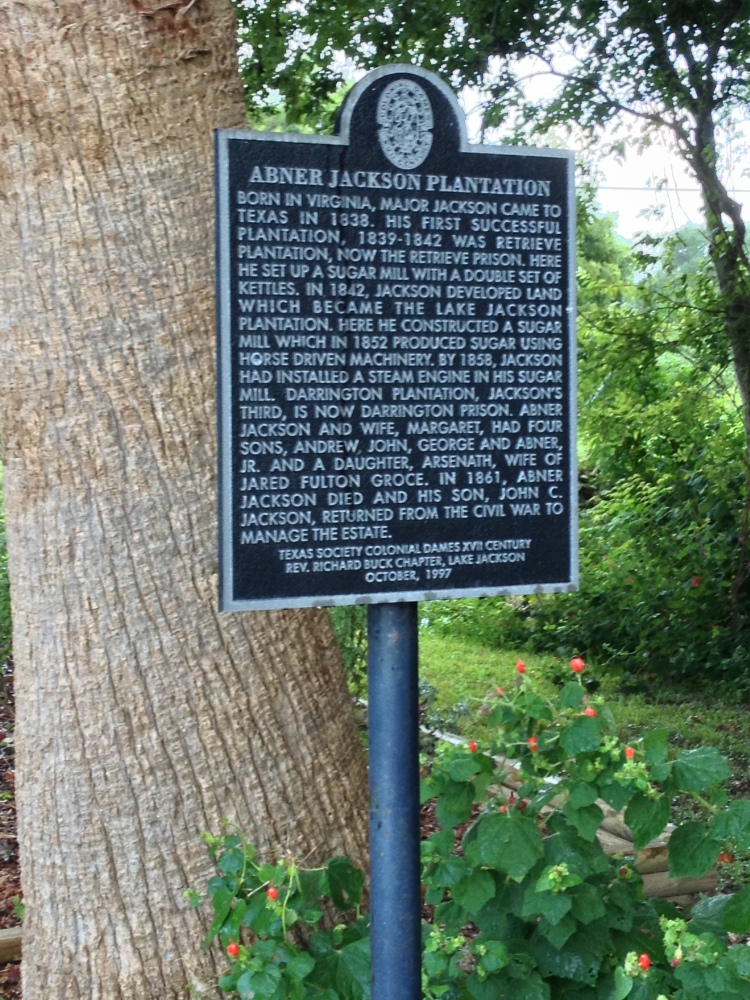
Two older men said, “Welcome. We’re not guards. We’re just standing here. [As I got closer, they had both stood up and did initially block the path.] Cannons and reenactments to the right, arts and crafts to the left.”
The first thing visible on the right was the Confederate battle flag. 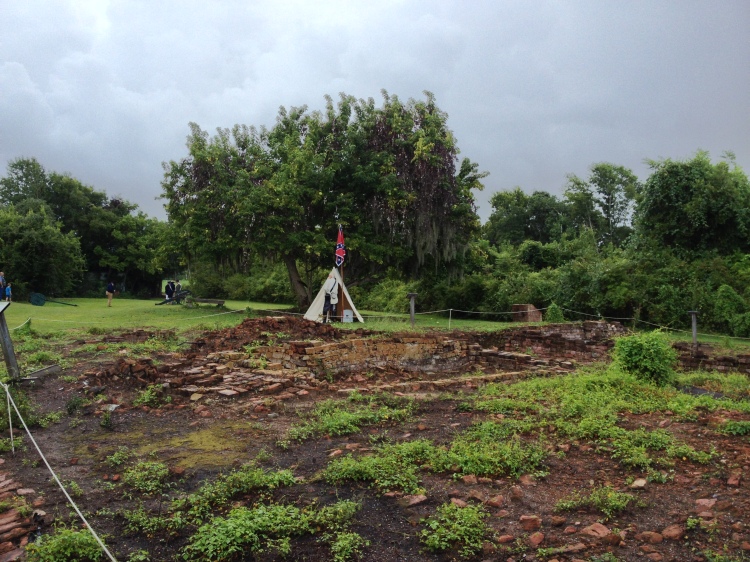
In the far corner, two children were demonstrating how to use guns “from back then” and were showing off some animal skins. They were clearly making stuff up by their responses to different questions, and equally, completely naive about what they were saying and doing. (I was worried they were going to shoot themselves or someone else!) I think most of the people at Plantation Day were naive about what was really going on and not going on. 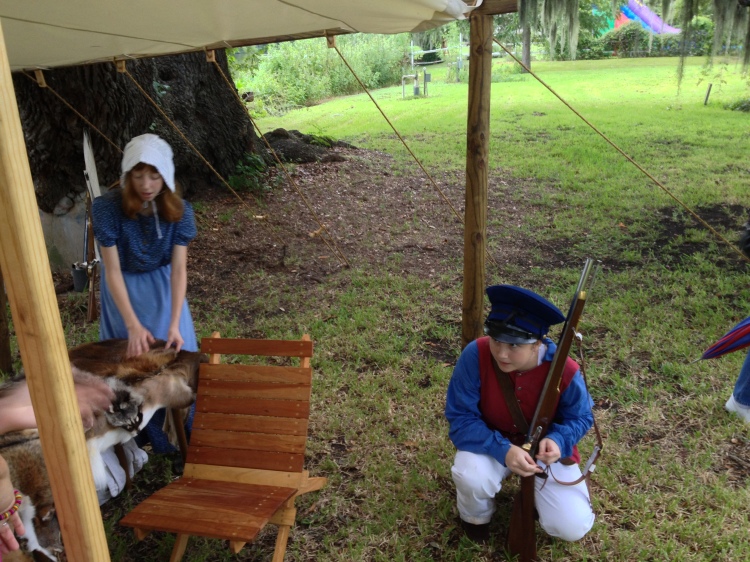
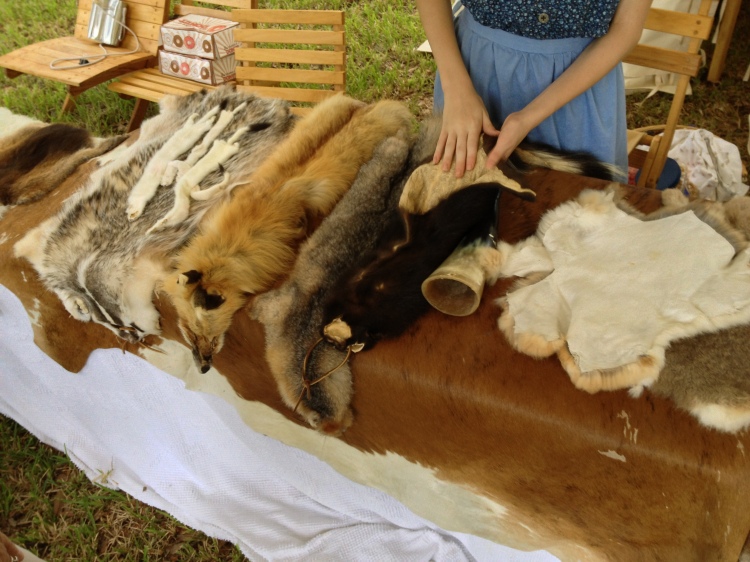
About this time the cannon when off. It was REALLY loud. From the email where the Lake Jackson Historical Association sent me the flyer, I know the group using the cannon received “special permission” to use it as they saw fit. 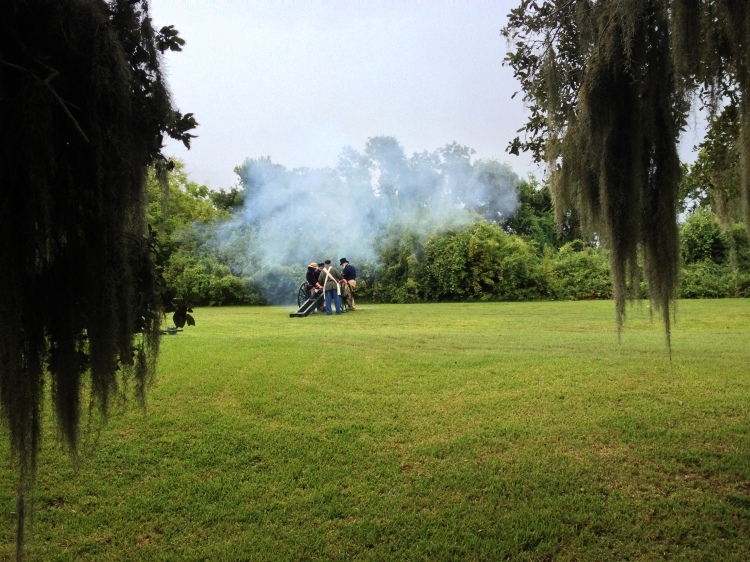
As I was preparing to see what was going in in the arts and crafts section, this man enthusiastically walked up to me, stuck his hand out, shook my hand, and announced, “I’m Major Abner Jackson.” A “slave,” whom Jackson called boy, was right behind Jackson. A group of [white] women dressed as “plantation mistresses” followed Jackson, as well. (I imagine at this point I complete blew my cover, so to speak, as my face probably turned ghost white, as the “horror” of the event escalated exponentially.)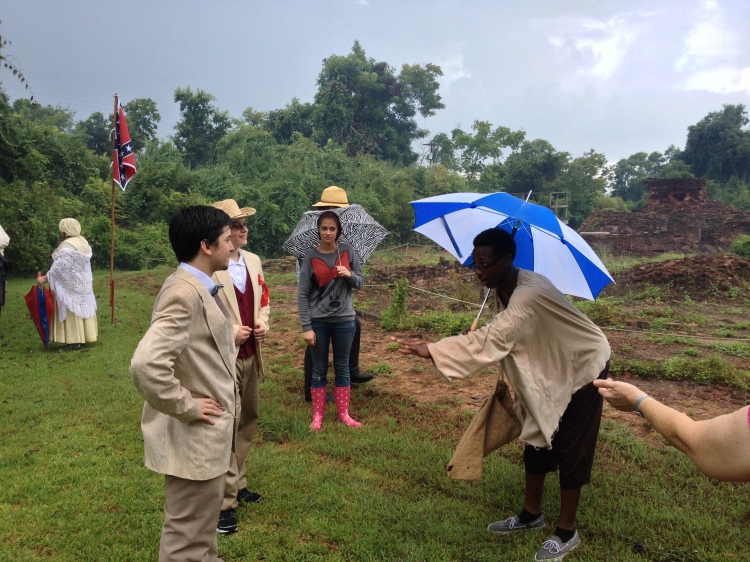
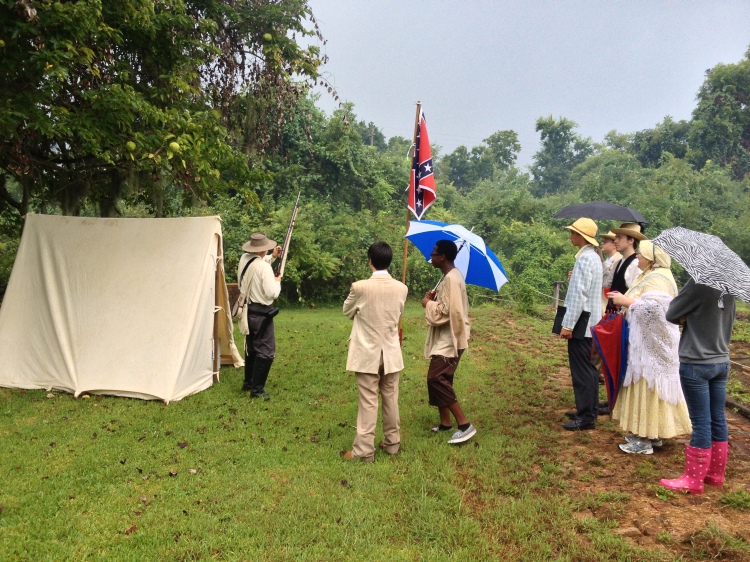
I next encountered some of the craft and food booths. I didn’t get a picture of each one but got many of them. One of them even had a small alligator. 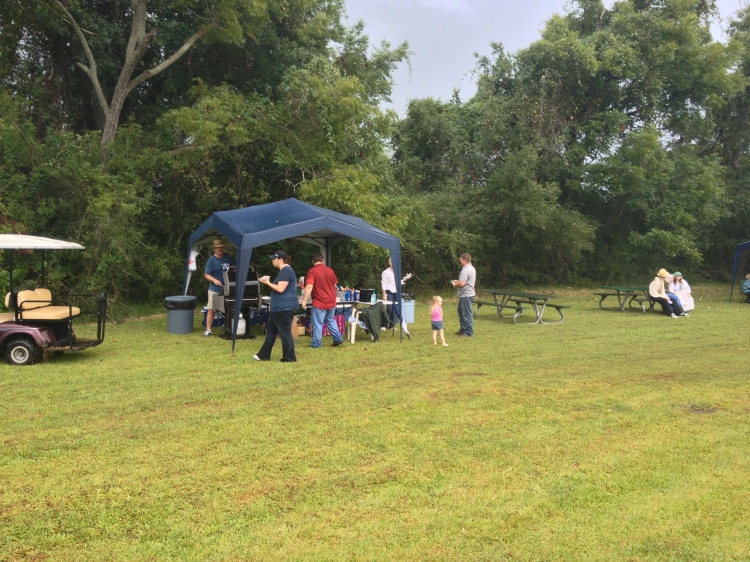
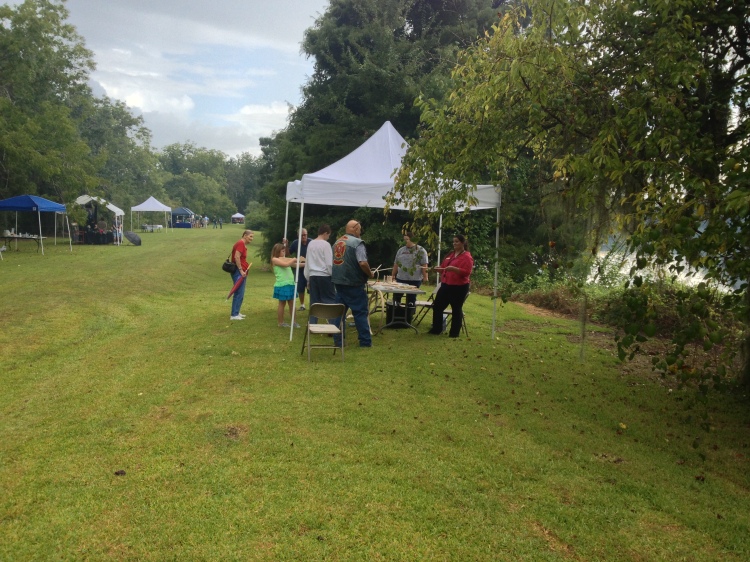
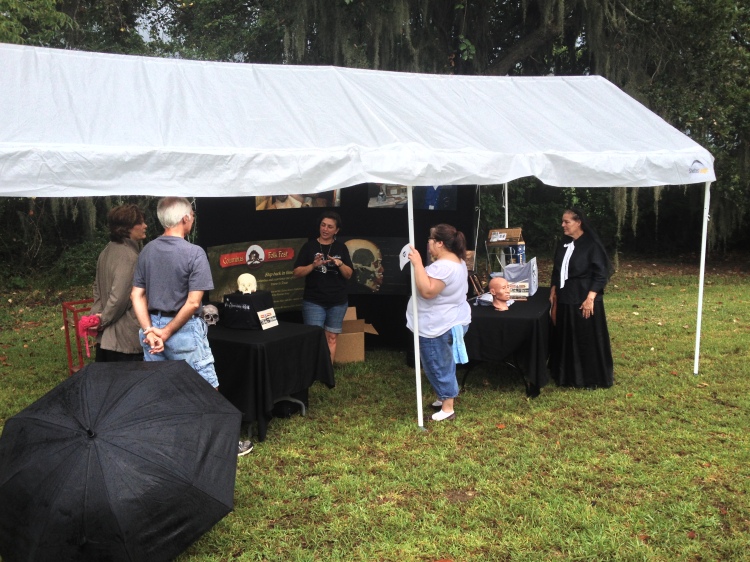
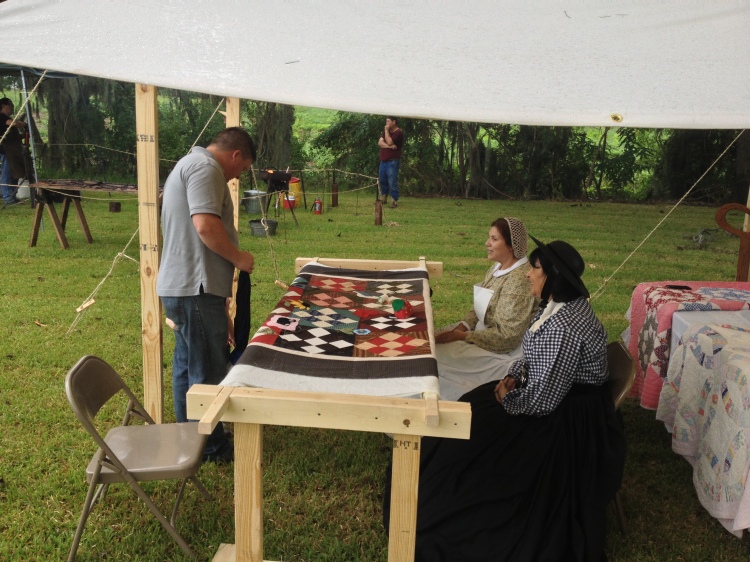
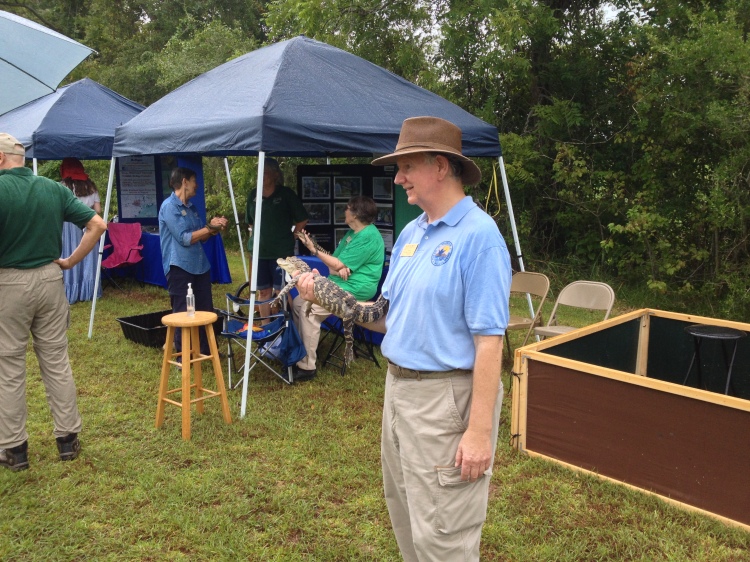
In addition, there were a half-dozen laminated signs and two more permanent signs with bits of information as part of the site’s permanent display.
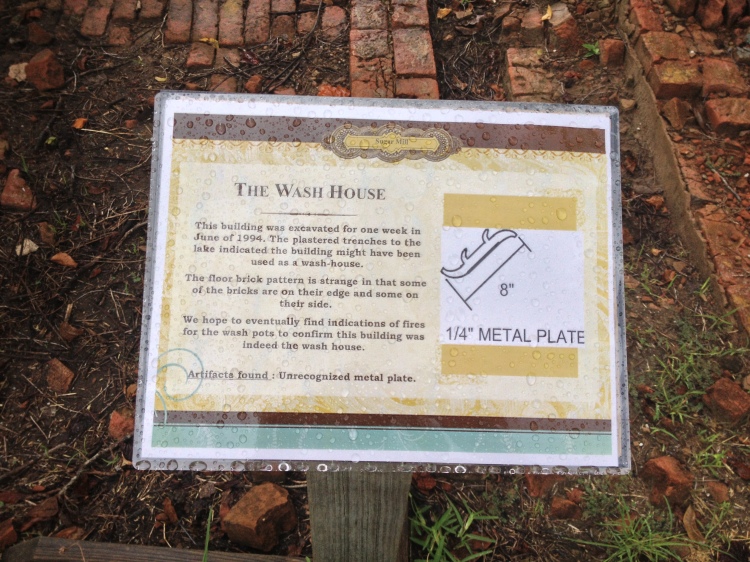
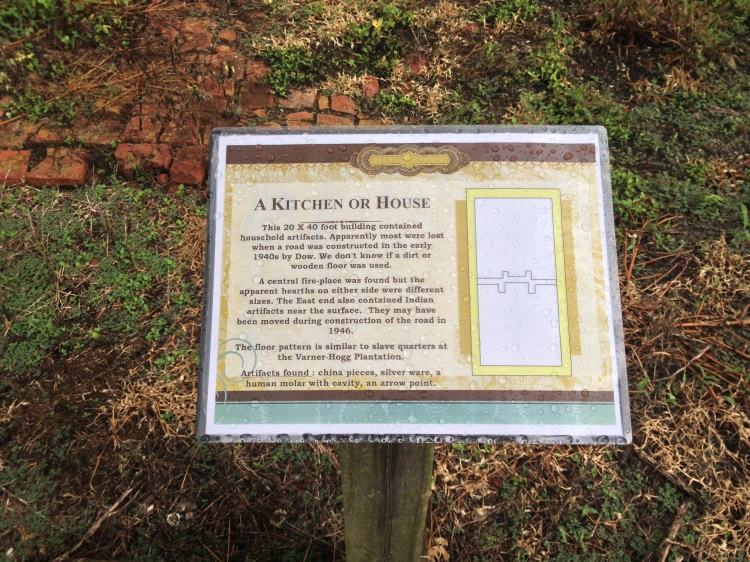
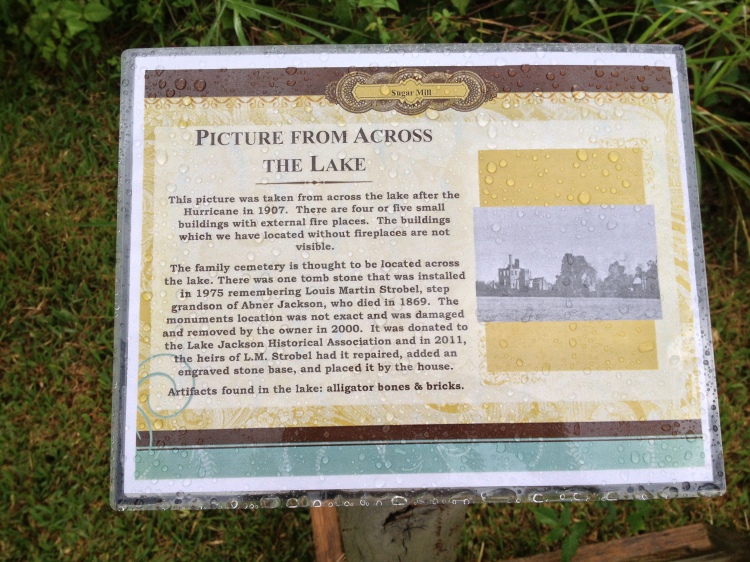
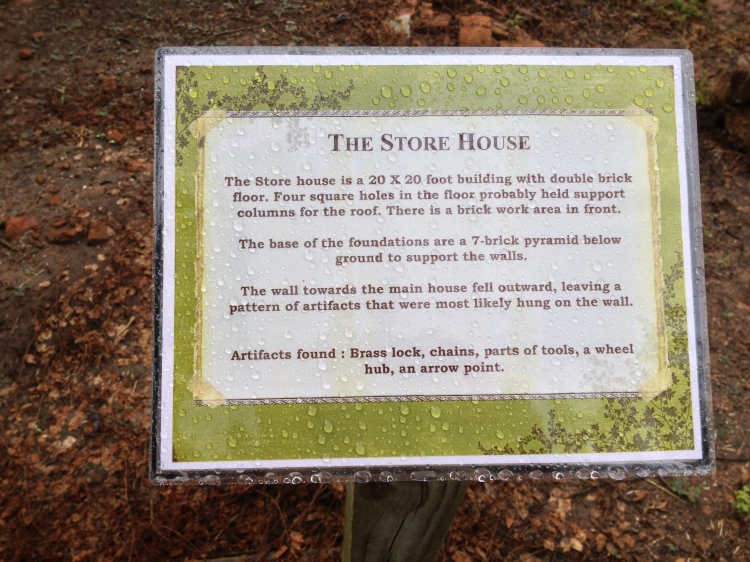
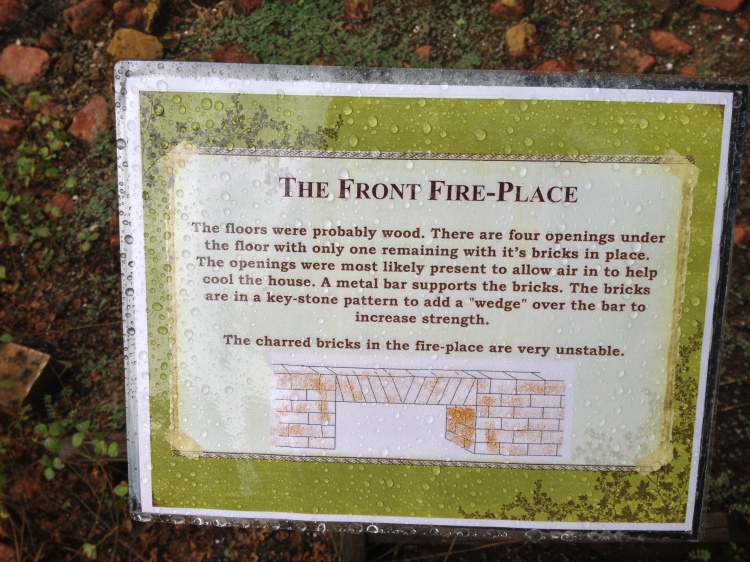
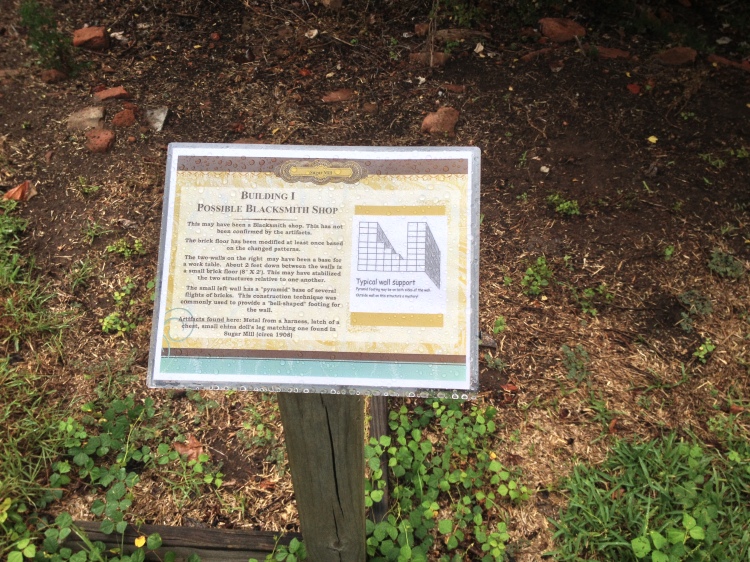
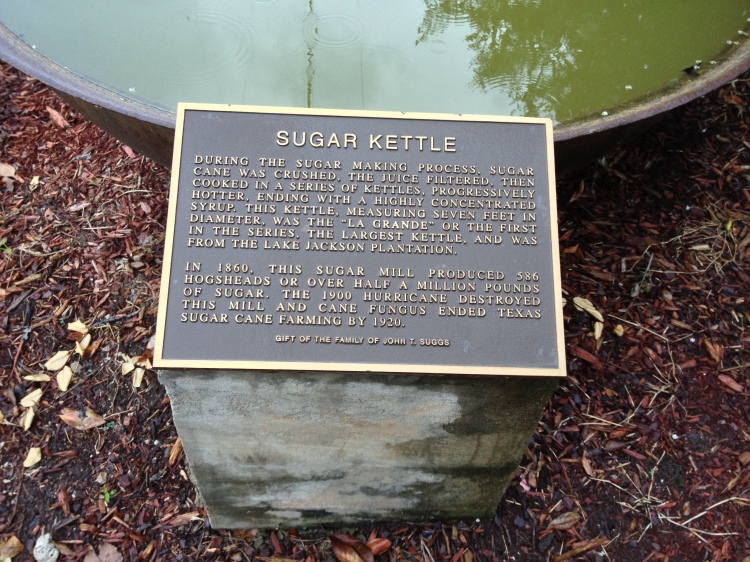
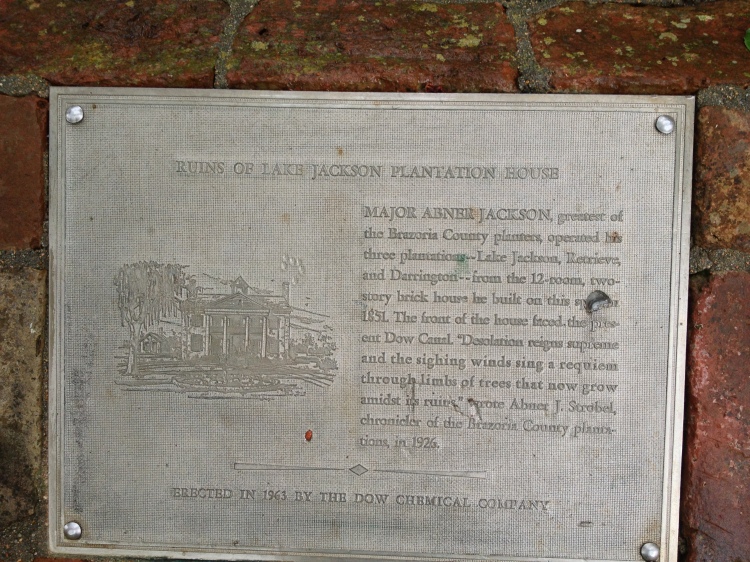
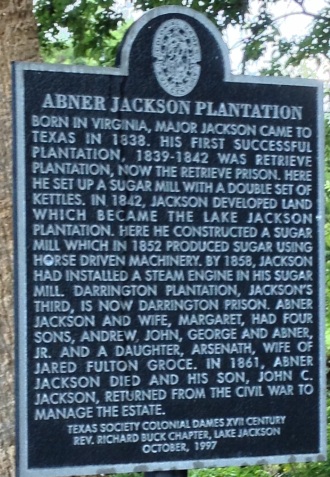
With the exception of the one man serving as an enslaved historical reenactor, there was no mention or discussion–directly or indirectly–of enslavement. In fact, he was the only black person present.
Take a quick look at the Texas Historical Commission’s plaque about the plantation again. There is no mention of enslaved African Americans. Credit for the plantation’s success is given to machines, horses, and Jackson himself. Likewise, none of the other signs recognized the constant, coerced labor African Americans faced. Additionally, we know black women were very likely to face all kinds of sexual abuse.
In reality, Abner Jackson had at least 300 enslaved African Americans on 3 plantations and most certainly many more because numbers were always purposely underreported. He was Brazoria County’s largest plantation owner. (Lake Jackson is in Brazoria County.) And he was in Texas’s top three enslavers. Lake Jackson, perhaps ironically, perhaps not, is not named after a “Lake Jackson.” It’s named after Major Abner Jackson.
Furthermore, in 1860, at least 72 percent of all people in Brazoria County were enslaved. More specifically, there were roughly 2,027 whites; 5,110 enslaved African Americans; and 6 free African Americans. In the decade leading to the Civil War, plantation life greatly increased in Brazoria County, making it the richest county in Texas. There were 46 plantations in this county that produced sugar and cotton. Some plantations also cultivated oranges and lemons and raised cattle. Enslaved African-Americans in Brazoria County produced 3/4s of the entire state’s output.
In no way did anyone running Plantation Day try to recreate the cruel dynamics that existed under slave societies. As presented , the relationship between Abner Jackson, his business parter, and Jackson’s slave was humorous on one level, and totally offensive on another level. All three were in and out of character. They in no way attempted an honest, though appropriate, display of what slavery was like – not that I expected them to either. Plantation Day made the days of Plantations seem natural, fun, and no big deal. Check out this excellent article for information about things as they really happened.
When I left to attend this morning, I wasn’t sure if the event would even still happen because it was raining hard and thundering. At the actual site, it rained lightly the entire time and thundered off and on. The mosquitoes were horrible. I don’t really know how many people were there because it was not organized and was spread out over at least a half-mile. The parking lot was level full. On one level, that the event had at least a good handful of booths and visitors throughout shows how dedicated people were to seeing this event happen or attending it. Lightning was in the area. Heavy, heavy rain nearby. And (I’ll say it again), the mosquitoes were horrible. A public swimming pool or any outdoor garage sale or something would have closed.
As I was about to leave, “Abner Jackson’s business partner” passed near me, turned to “Abner Jackson” and said, under his breath:
“You know, I really don’t know my history.”